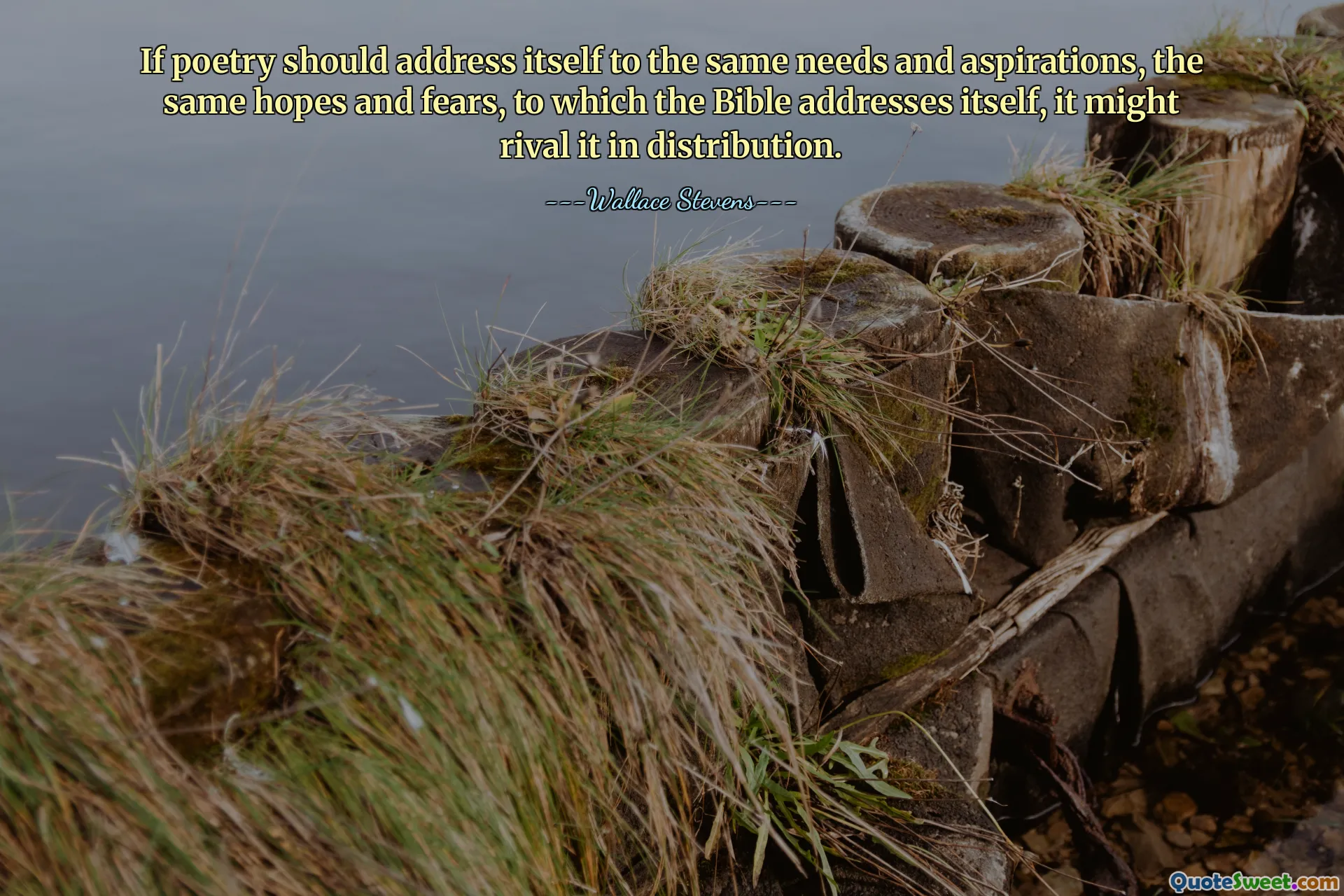
If poetry should address itself to the same needs and aspirations, the same hopes and fears, to which the Bible addresses itself, it might rival it in distribution.
This quote by Wallace Stevens elevates the significance of poetry by suggesting that, when it resonates with the core human experiences—our hopes, fears, needs, and aspirations—it can reach the same universal influence as the Bible. Poetry, often seen as a refined art form or a literary pursuit, is here positioned as a powerful vessel capable of enacting profound emotional and spiritual impact. The idea implies that the true value of poetry lies not merely in its aesthetic qualities but in its capacity to mirror the fundamental questions and struggles of human existence. When poetry speaks to these elements, it becomes more than art; it becomes a means of connection and understanding across the spectrum of human life. This perspective invites us to see poetry as a communal instrument, offering solace, hope, and insight, much like sacred texts do for their followers. The comparison also underscores the potential universality of poetic voice, capable of traversing cultural and religious boundaries when it touches upon the shared human experience. It challenges poets and readers alike to view poetry as a vital part of the dialogue that shapes human life and understanding, emphasizing that its true power lies in its ability to address the deepest parts of ourselves and our shared journey through life.







